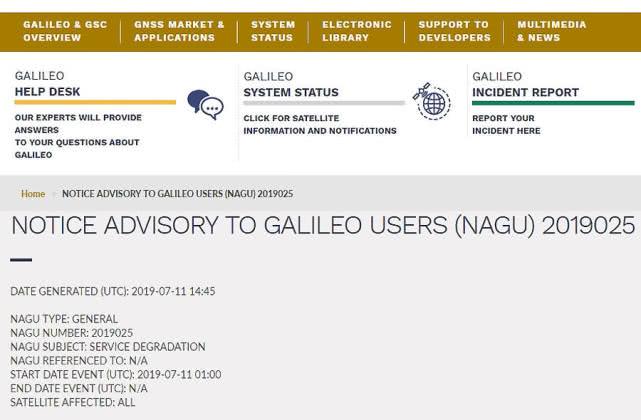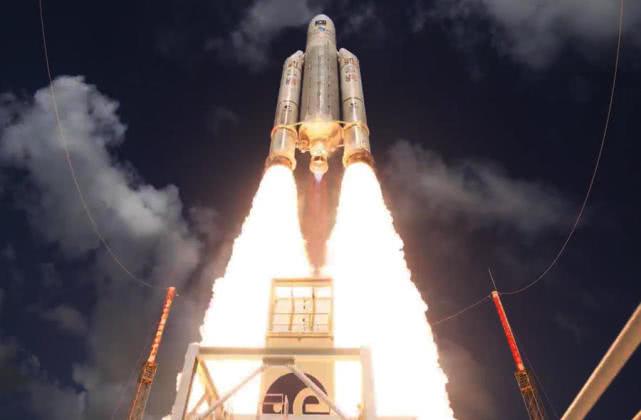
Galileo Navigation Issues System Deterioration Warning
The Galileo navigation system cannot update the satellite ephemeris normally. The so-called ephemeris is the important data for determining the space-time position of the spacecraft, which means that users around the world will soon be unable to receive the correct signal from the system. The system deterioration warning also discloses an important information, that is The cause of the failure is unknown, and it is impossible to predict when the service will be restored.
On July 25 last year, an Ariane-5 large thrust carrier rocket successfully sent four networked satellites numbered FOC FM-19, 20, 21, and 22 into the scheduled orbit, which means that the Galileo system has been painstakingly operated for 15 years. Basically have the hardware capabilities of global navigation. According to the plan, the system will provide 10-meter-level positioning services to users around the world this year, but it fell short when it was about to be done. It is not an exaggeration to use the term “bad news”.

Ariane-5 rocket launches Galileo networking satellite
The global satellite navigation system is an important strategic support for the status of a major country. We often emphasize its economic value. No entanto, as we all know, military use is its first value, and the Galileo navigation system is no exception.
The Galileo navigation system is also regarded as a symbol of the unity of the European Union. The system was first initiated by Germany, França, and Italy. The fundamental reason for the creation of an autonomous and controllable global navigation system is Europe’s distrust of the GPS system, because the latter injects a “selective availability mechanism” while providing navigation services to the world, which means that GPS signals are artificially limited to navigation accuracy. Europeans worry that GPS will also attack them if they encounter extreme situations.



